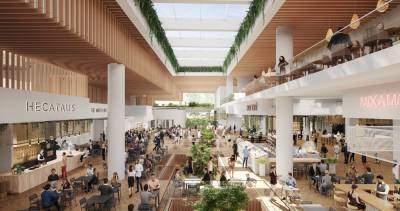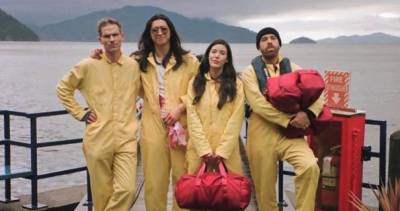Chris Shaw: It’s time to discuss limits to growth: Some thought experiments
It’s a hard sell to tell people we have to stop growing the consumer economy, particularly when so many are already struggling just to get by in the current economic climate. Housing in Vancouver is absurdly expensive to begin with. Food prices are high as well. Raising a family on a “normal” wage is pretty daunting overall. Indeed, it is quite easy to understand those who think that De-Growth Vancouver will make them poorer in relation to the one percent who already have the lion’s share of the pie.
So to the 99 percent who are already in tough economic straits, and even to the one percent who already have it all, let’s pose the following thought experiments:
1. How do you increase anything endlessly in a finite space with finite resources, or do you think that the problem of limits is so far off that it is best left to future generations? David Suzuki has a good analogy of cells growing in a petri dish: up until the last cell division, it all looks pretty good; then, rather suddenly, it doesn’t. You can leave the problem to your kids and grandkids to sort out, or you can begin to think about it now. It really is your choice, but it is a choice with consequences.
2. If we don’t get a handle on growth for its own sake, if we continue to consume to support a consumer economy and in so doing increasing our ecological footprint, how do we not continue to negatively impact the rest of the biosphere? How do we allow those in other countries to have all the goodies we have if we don’t begin to cut back on our own consumption? It is sort of a zero-sum game: we expand, other things contract; we win (for awhile), other things like bears and trees and salmon and the rest of the fishery, not to mention other people, lose.
3. How do you ever get a grip on spiraling real estate and rental costs when we, as a city, continue to foster mega-developments for the rich, rather than true affordable housing for the rest? Case in point: the Little Mountain development. Maybe it’s time to consider some rather serious restrictions on such developments, impose meaningful rent controls, discourage real estate speculation, and, finally, let communities decide how they want to evolve?
4. Do we achieve real sustainability with the “developer-as-councillor” types in city hall who talk about “green growth” or do we begin to consider just what real grassroots democratic governance would look like and how neighbourhoods/communities themselves could decide on how to achieve true sustainability, not to mention food security and other measures to keep them and their neighbours safer?
The answers, at least my answers, to the above are the following:
1. Begin to think of the limits to growth in Vancouver, starting by eliminating mega projects that are not specifically designed to provide affordable housing for average people, not to mention social housing.
2. Enact measures designed to put the brakes on real estate speculation in the city, including community decision making in all development proposals, rent controls, and significant taxes on property flipping.
3. Make Vancouver a “transition city”, secure in food, water, and energy and thus able to face whatever challenges the future holds.
4. Enable neighbourhoods/communities to make their own choices, that is a system in which city government enables, adjudicates, and facilities community decisions, rather than dictating them top-down.
The mantra of the one percent is endless growth, most of it for them. Maybe it’s time for the 99 percent to begin to think that economic justice for all means limiting this growth in ways that benefit themselves rather than by joining the one percent in degrading the only planet we have?
Chris Shaw is a De-Growth Vancouver candidate for city council.















Comments
1 Comments
James G
Nov 4, 2011 at 10:23pm
I can't say it isn't ballsy to suggest to a population already in economic recession that a full out depression would suit far better. The question is who and the problem is context. Without a class analysis, what you are proposing makes the under-employed unemployed, the under-housed homeless and the struggling destitute. We are in an international context wherein the manufacturing capacity of North America has in large part been shipped abroad and control over economies is increasingly escaping the nation-state to the multinational corporation. This is a municipal election and what passes for power at City Hall won't even reach as far as rent control, never mind international commerce.
You are also in a democratic forum within whose midst are working class stiffs like myself who have heard from the powerful all of our political lives the very slogan, "We've all got to tighten our belts!" Guess whose belts were always tightened?
You should also do some study. Maybe read a lot less $ky-is-Falling $uzuki and pick up on Gramsci. You clearly have a social conscience and have done some good for this City. De-Growth is not a part of that. What is really proposed here is nothing short of the germination of the seeds of a new fascism.